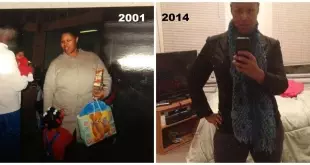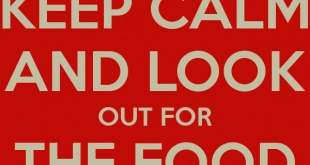Every once in a while, when the stars align correctly, I get
in the mood to write a manifesto. The disclaimer here is that these are my
thoughts. I’m not a doctor. I’m not a registered dietician. I’m not a
psychologist. But I am a post-op who comes into contact with a LOT of other
post-ops on a day-to-day basis and so when I see trends, I speak on them. I
always expect that my manifestos will get me cursed out but somehow it usually
turns out ok.
in the mood to write a manifesto. The disclaimer here is that these are my
thoughts. I’m not a doctor. I’m not a registered dietician. I’m not a
psychologist. But I am a post-op who comes into contact with a LOT of other
post-ops on a day-to-day basis and so when I see trends, I speak on them. I
always expect that my manifestos will get me cursed out but somehow it usually
turns out ok.
Today I’d like to talk about our expectations out of this
process. Because from where I sit some of our expectations can be a little…interesting.
process. Because from where I sit some of our expectations can be a little…interesting.
In jest, I call some of these expectations “fallacies,”
mostly because the thinking behind them can be potentially harmful (and when I
say harmful I mean both emotionally and, in some cases, physically). So I’ll
dive right into the three most common ones I see.
mostly because the thinking behind them can be potentially harmful (and when I
say harmful I mean both emotionally and, in some cases, physically). So I’ll
dive right into the three most common ones I see.
The Fallacy of Equity
This is a fancy way of saying that I see many post-ops who
believe that if everyone follows the same rules after surgery, everyone should
get the same results. Some folks even believe that because they feel they work
harder than other post-ops they should see better results.
believe that if everyone follows the same rules after surgery, everyone should
get the same results. Some folks even believe that because they feel they work
harder than other post-ops they should see better results.
These are FALSE. I’m living proof of that! I followed the rules of my surgery
to a “t” for the first two years post-op. I exercised like a demon (there is
documentation of this), I ate the proper number of calories, I was a protein
champ. I never, ever saw this so-called “normal” rating according to the BMI.
In fact, most of you will get an average of 20-40 lbs. smaller than I was at my
smallest!
That’s not a rant on my part but I am saying this. Like most other statistical measures, WLS
results are measured in broad trends, not individual numbers. Surgeons expect a
certain percentage of your body fat
loss based on the general trends they see, along with any influencing factors that apply to your body. But, again, that is relating you to you. Not
to anybody else. So just because so-and-so lost a hundred pounds in four months
does not mean you will NOR does it mean that you are a failure if you don’t. Your body is your body. Don’t
compare to anyone else!
results are measured in broad trends, not individual numbers. Surgeons expect a
certain percentage of your body fat
loss based on the general trends they see, along with any influencing factors that apply to your body. But, again, that is relating you to you. Not
to anybody else. So just because so-and-so lost a hundred pounds in four months
does not mean you will NOR does it mean that you are a failure if you don’t. Your body is your body. Don’t
compare to anyone else!
Bottom line: We
are not all the same. And we, as post-ops, aren’t always the best equipped to
make apples-to-apples comparisons. So instead of worrying about so-and-so, stay
on your plan.
are not all the same. And we, as post-ops, aren’t always the best equipped to
make apples-to-apples comparisons. So instead of worrying about so-and-so, stay
on your plan.
The Fallacy of
Graduation
Graduation
I see this one a lot. I practiced this one from years 2 – 4!
This is the fallacy that allows mid- to longer-term post-ops (and sometimes even very ambitious newbies) to believe that
they have “graduated” from obesity. Perhaps they’ve reached a certain weight,
their labs look fine, they feel great and they think, “Ok, I’m not obese
anymore! I don’t have to live by any rules anymore. Yippee!”
This is the fallacy that allows mid- to longer-term post-ops (and sometimes even very ambitious newbies) to believe that
they have “graduated” from obesity. Perhaps they’ve reached a certain weight,
their labs look fine, they feel great and they think, “Ok, I’m not obese
anymore! I don’t have to live by any rules anymore. Yippee!”
That is FALSE. I hate to be the bearer or discouraging news
but once a post-op, always a post-op. And to go even deeper, science is starting to tell us that even when our bodies get to be a normal size, our metabolism
will probably always be that of an obese person.
but once a post-op, always a post-op. And to go even deeper, science is starting to tell us that even when our bodies get to be a normal size, our metabolism
will probably always be that of an obese person.
Now you can choose to interpret this information as discouraging. You may feel
hopeless. I personally don’t see that as the point. To me, the point is that,
on some level, we have to continue to work at our health for our entire lives. This should not be
discouraging to any of you because even healthy non-ops have to work at their
health for their entire lives. It’s a fact of life. The body takes maintenance.
For us, that maintenance includes being aware of what we eat, how much we move,
taking vitamins, drinking water.
Bottom line: While your life won’t always be centered on the
WLS process, the WLS process will always be at least a small part of your life.
You don’t graduate, pass go or collect $200.
WLS process, the WLS process will always be at least a small part of your life.
You don’t graduate, pass go or collect $200.
The Fallacy of
Similar Consequences
Similar Consequences
This one is similar to the Fallacy of Equity but slightly
different. Again, this is one I have been especially guilty of throughout my
process. The thinking goes a little something like this.
different. Again, this is one I have been especially guilty of throughout my
process. The thinking goes a little something like this.
“I exercise and do everything I am supposed to. Jane does not. In fact, I see she eats cookies and still maintains a great weight loss. So I should be able to eat cookies.”
Now…first, divorce yourself from the specific example
because cookies could be anything, even stuff that isn’t food. Cookies could be
exercising enough, taking your vitamins or myriad other things. The point here is that we sometimes see others doing things
we want to do (and believe me, I get the desire to just let loose, I really
do!) and think that because that person didn’t have any visible negative
consequences, you won’t either.
because cookies could be anything, even stuff that isn’t food. Cookies could be
exercising enough, taking your vitamins or myriad other things. The point here is that we sometimes see others doing things
we want to do (and believe me, I get the desire to just let loose, I really
do!) and think that because that person didn’t have any visible negative
consequences, you won’t either.
That is FALSE. The thinking is at least. You could very well not have many
adverse consequences to relaxing your personal rules (although I can say with confidence that eventually not taking your vitamins usually catches up with you!). BUT you should always make those decisions based on factors related to you, not anybody else.
Jane is Jane and you are you. Just because Jane can eat cookies every day and
maintain her weight does not mean that’s what you should (or even want) to do.
Am I making sense here?
I’ll give you another personal example. Not only have I
always trended higher on the scale than most other post-ops but I’ve almost
always been able to eat more. And there was a time when I followed the Jane’s
of the world into some new habits. In and of themselves said habits weren’t so
bad, but they weren’t the right decisions for me or my body. So they
did not have favorable results. I had to learn that even though Jane was doing
things I wished I could do, I could not do them. I don’t get the same result as
Jane. Why? Because my body is different from hers!
always trended higher on the scale than most other post-ops but I’ve almost
always been able to eat more. And there was a time when I followed the Jane’s
of the world into some new habits. In and of themselves said habits weren’t so
bad, but they weren’t the right decisions for me or my body. So they
did not have favorable results. I had to learn that even though Jane was doing
things I wished I could do, I could not do them. I don’t get the same result as
Jane. Why? Because my body is different from hers!
There are many, many more of these so-called lines of thinking that I see, but these are the ones I see most commonly. I think in general this is a learning process. And far too many of us (present company included) have to learn this stuff from the School of Hard Knocks. Insofar as I can give a little insight that may help you recognize these patterns and act on them (if need be), I feel my mission is accomplished!
Keep playing with your food, Foodies. 🙂
 Bariatric Foodie Play with your food
Bariatric Foodie Play with your food



Love this!! Thank you so much Nik for putting this in words that I will share with my surgery friends. You are the best! ((HUGS)) KD
I especially like the message here: everyone is different. So true, and I wish more post-ops would realize this.
There is no finish line